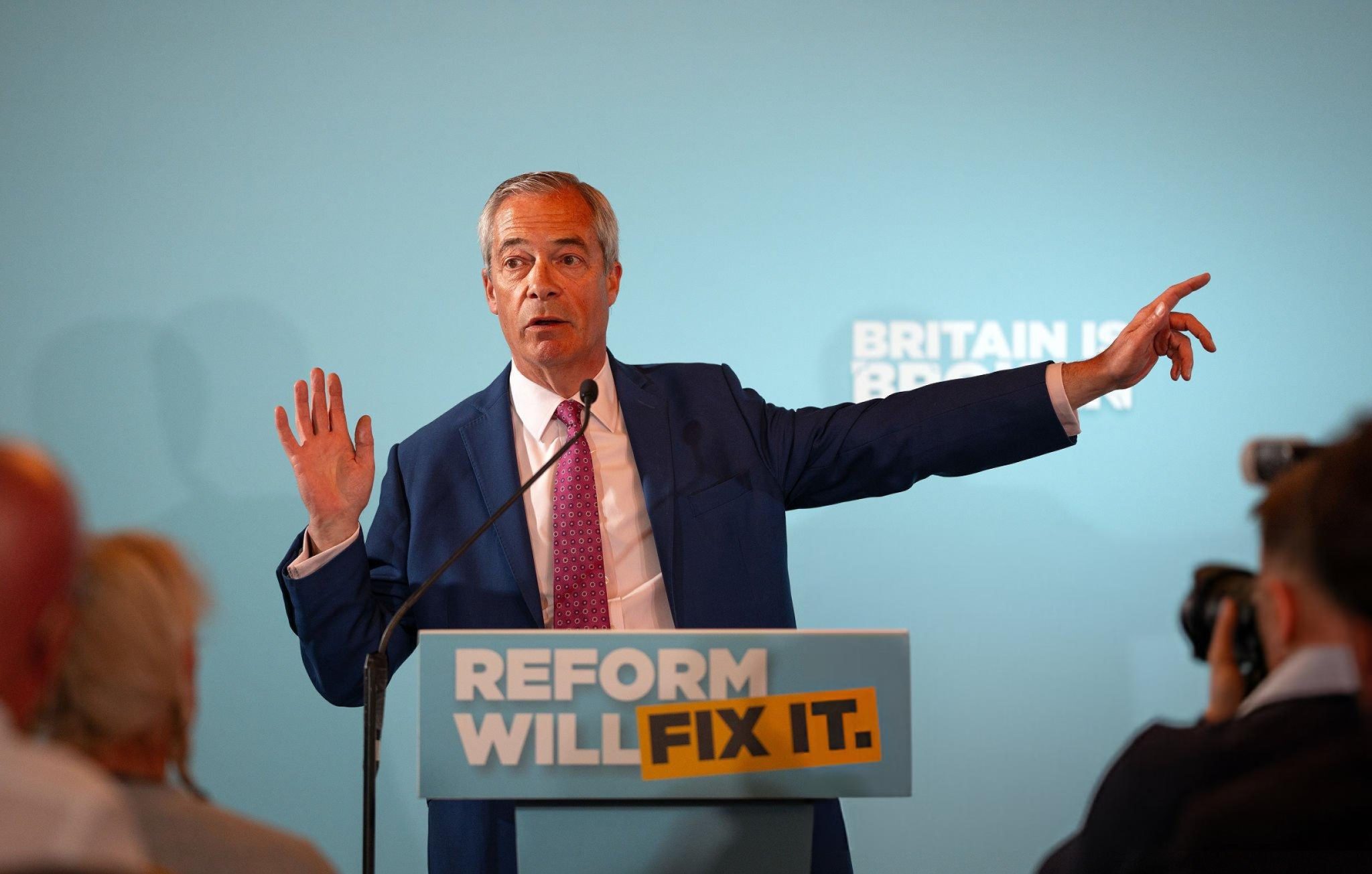Main party leaders under pressure as Reform sweeps to victory in local electionsFarage hails “death of the Conservative Party” as Reform UK claims 10 councils and 600 seats across England
Britain’s political landscape has been shaken after a dramatic local election which saw Reform UK surge to victory, securing control of 10 councils and more than 600 seats, in what Nigel Farage described as “the death of the Conservative Party”.
The results have sent shockwaves through both the Conservative and Labour leaderships, with senior figures in each party facing mounting pressure to halt the apparent momentum of the insurgent party.
Speaking after the results, Mr Farage declared: “This is the end of two-party politics. Voters are tired of being ignored. We’re seeing the death of the Conservative Party and the beginning of a new political era.” Reform’s success included capturing Doncaster Council, a traditional Labour stronghold, and a razor-thin win in the Runcorn and Helsby by-election.
The Conservative Party, meanwhile, endured one of the most bruising nights in its modern history, losing over 600 councillors and all 15 councils it previously held. The outcome has intensified speculation about the future direction of the party and its leadership.
Kemi Badenoch, widely regarded as a future Conservative leader, acknowledged the devastating results and issued a public apology to those who lost their seats. “To all our hardworking councillors who were defeated, I am truly sorry,” she said. “I am going to make sure that we get ourselves back to the place where we are seen as the credible alternative to Labour.”
Despite Reform’s rise, some senior Conservatives rejected the suggestion that the results were existential. One former cabinet minister insisted: “These results are dire, but not irreversible. The Conservative Party has recovered from worse.”
Labour, while expected to capitalise on Tory losses, also found itself on the defensive after losing key ground to Reform in some northern areas. Doncaster Council’s loss and the Runcorn and Helsby result have rattled Labour’s backbenches.
Emma Lewell, MP for South Shields, criticised the leadership’s response: “It’s tone deaf to keep repeating that we’ll move further and faster on our plan for change. What is needed is a change of plan.” Her comments echoed growing frustration among Labour MPs who fear the party’s message is failing to resonate in working-class communities.
Brian Leishman, Labour’s newly elected MP for Alloa and Grangemouth, also urged a rethink. “The first ten months haven’t been good enough or what the people want. If we don’t improve people’s living standards, the next government will be an extreme right-wing one,” he warned.
Prime Minister Sir Keir Starmer, writing in The Times, struck a defiant tone, insisting that there was “tangible proof” that progress was being made, but conceded that more needed to be done. “I am acutely aware that people aren’t yet feeling the benefits. That’s what they told us last night,” he wrote. “Until they do, I will wake up every morning determined to go further and faster.”
Sir Keir also issued a caution against political extremism and populism. “The lesson of these elections isn’t that the country needs more politicians’ promises or ideological zealotry. It isn’t that there is some easy solution, as promised by our opponents. It’s that now is the time to crank up the pace on giving people the country they are crying out for.”
With a general election potentially less than a year away, the strong performance of Reform UK has upended traditional assumptions and raised difficult questions for both major parties. For now, Reform’s momentum appears undeniable, and both Labour and the Conservatives may be forced into serious introspection as they face an increasingly restive and volatile electorate.






